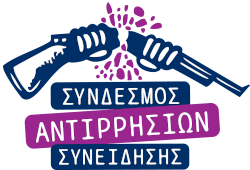Demilitarisation, the only way out
By Nicos Trimikliniotis
Cyprus, a tiny divided in the eastern in the Mediterranean is military minefield: Even after accession to the EU, no country in the world, with the exception of Korea has seen its territory amassed with such a deadly array of weaponry with possible catastrophic consequences for the inhabitants: 40000 Turkish occupying forces with another few thousands of Turkish-Cypriot soldiers facing a few thousand Greek-Cypriots in national service and a few thousand Greek soldiers; British troops and bases and a few thousand UN peace keepers guarding the ceasefire line.
Since 1974 with the Coup by the Greek Junta and the local EOKA B’ fascists and the Turkish military invasion, Cyprus remains divided by the ‘Green line’. From the buffer zone, a kind of no man’s land in the middle one can see both young soldiers, with their respective ‘national’ symbols. They look exactly the same: their features are the same; their youth, their boredom and their guns in those awful green uniforms.
Last year, on the 24th April, following a long period of negotiations, the UN proposed a comprehensive plan to resolve the problem. Greek-Cypriots voted ‘NO’ whilst the Turkish-Cypriot ‘YES’, 64%, has raised the stakes even further. In the past it was Turkey and the Turkish-Cypriots who objected to a solution. Not all is lost however; the path top peace and reconciliation cannot be halted for long.
The ‘Cyprus problem’ is certainly not new; Cyprus’ strategic position, at the centre of three continents in the eastern Mediterranean, close to the oil producing Middle-East and a highly valued location for various regional imperial machinations raised the stakes: The ‘unsinkable aircraft carrier’ of the near Middle East had been a long-desired station-point for various world powers. However, there is also another equally deadly dimension: nationalism and irredentism. The two main communities instead of looking towards each other, they looked towards their respective ‘mother countries’.
It is time to move on towards a new peace activism. Greek-Cypriots and-Turkish must show courage by attempting to work towards a second referendum and building the bridges of trust, understanding and good will: The NO vote reflected to a large extent the feeling of insecurity, uncertainly and fear of the Greek Cypriot population. These fears need to be properly addressed, if we are to have better chance next time.
In the meantime imagination, action and initiative need to build trust and cooperation between the two divide communities. A vital measure would be the demand for an immediate reduction of all troops leading to the full demilitarisation of the island. The military industry and the industry of hate ideology and nationalism are opposed to such move. Also a number of other initiatives for peace and reconciliation must now be strengthened. Such measures must not however be mere tactical manoeuvres for media and marketing purposes, they must be serious, robust and legitimate.
This is the time for peace activism and genuine imaginative common action. Trade unions, women’s groups, youth groups, citizens action groups and NGOs must work together at this critical moment and overcome all the ‘state’ and ‘ethnic’ boundaries. This is the best guarantee for freedom and security, over and above any legalistic and international guarantees, which are also of course welcome.
A new impetus to peace and reconciliation activism is sought and all energies must be devoted into building the trust we lost all these years. Peace keeping on the island can only be successful if it leads to the complete demilitarisation of the island.
2005 04 01 Demilitarisation, the only way out.rtf.txt
